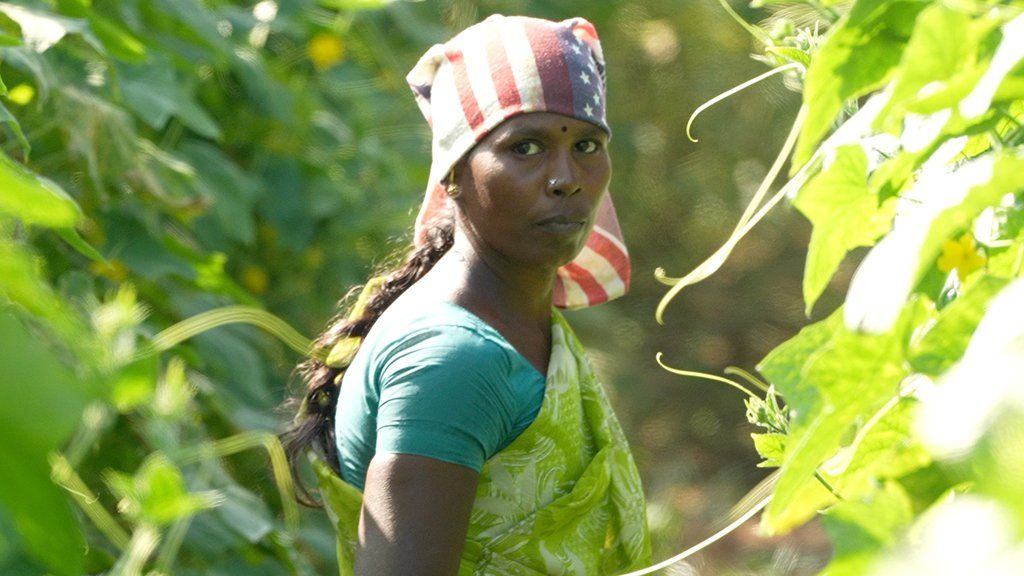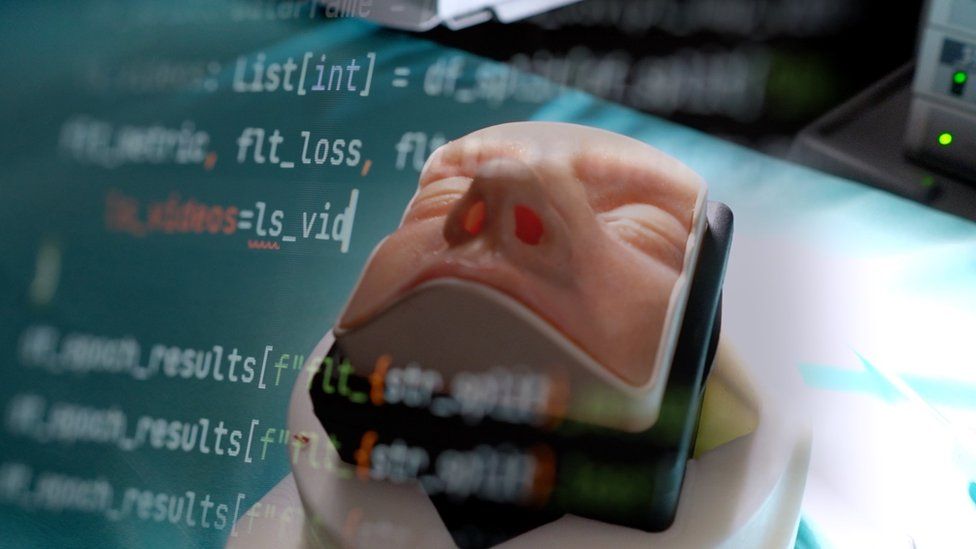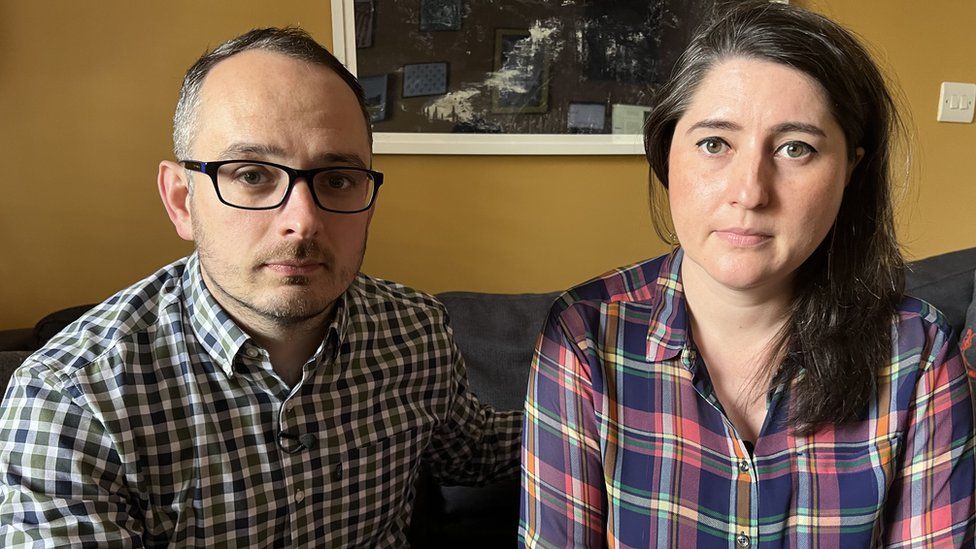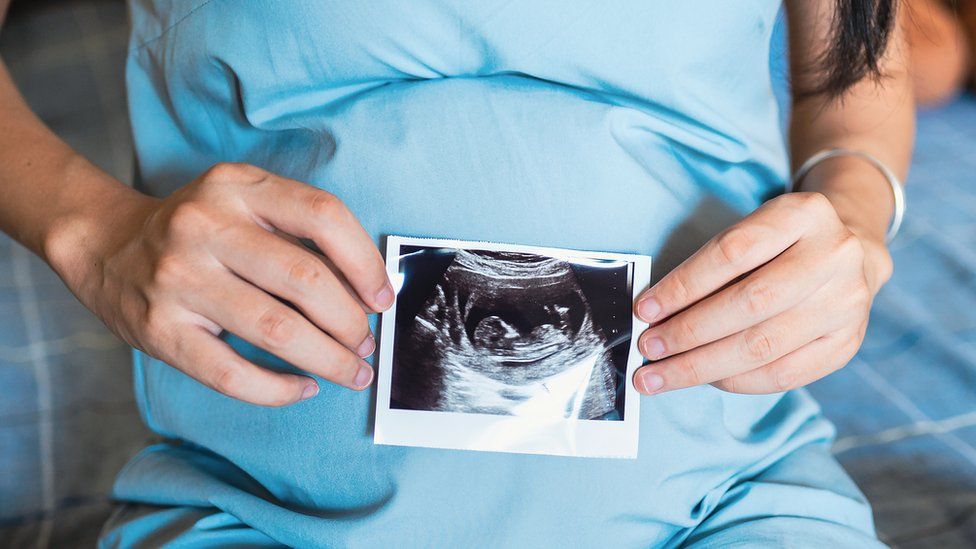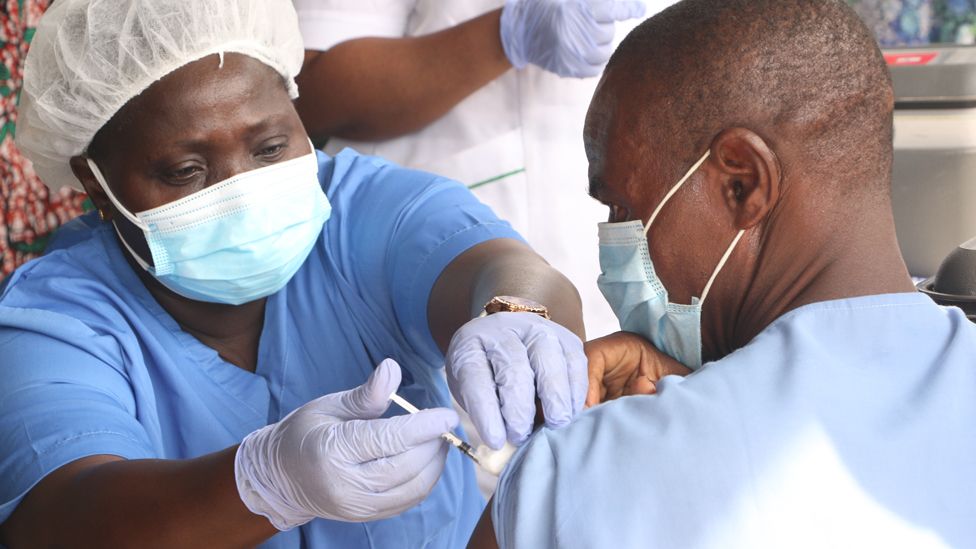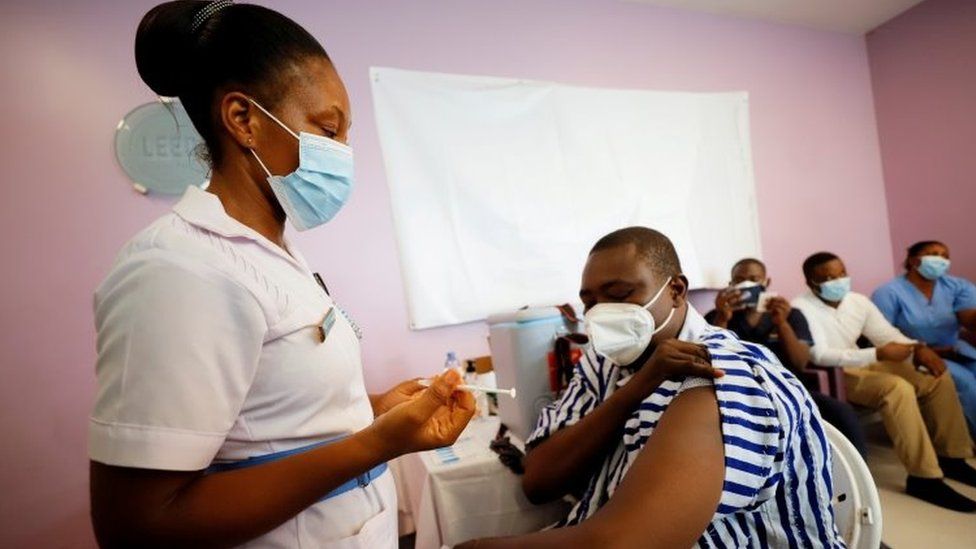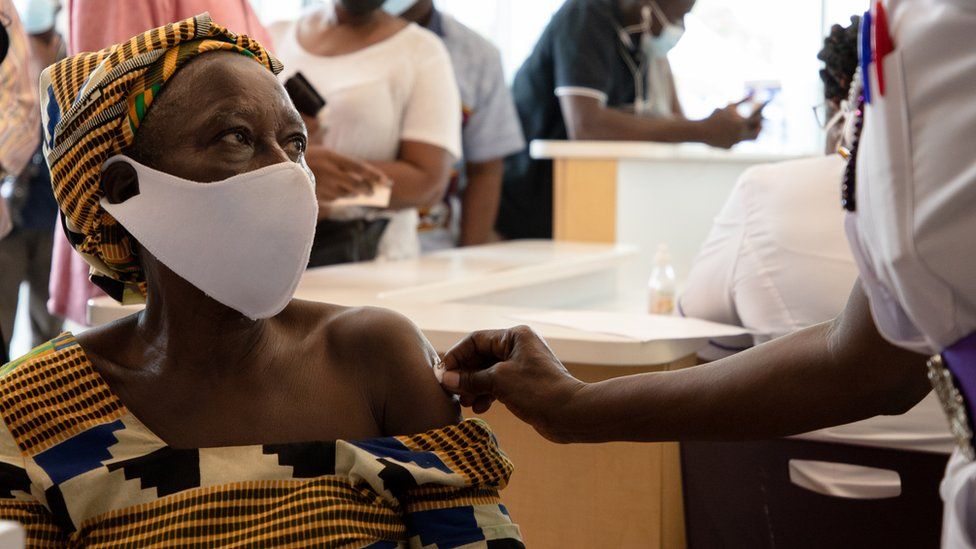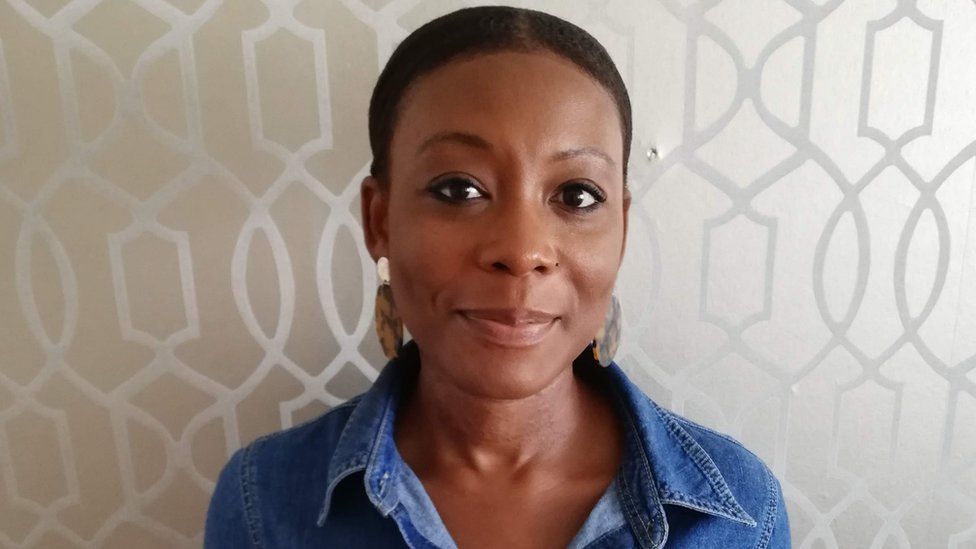Extreme heat can double stillbirth risk – study
Published34 minutes agoShareclose panelShare pageCopy linkAbout sharingBy Tulip MazumdarGlobal health correspondentWorking in extreme heat can double the risk of stillbirth and miscarriage for pregnant women, according to new research from India. The study found that the risks to mothers-to-be are significantly higher than previously thought. Researchers say hotter summers can affect not only women in tropical climates, but also in countries such as the UK.They want specific health advice for working pregnant women globally.Eight hundred pregnant women in the southern Indian state of Tamil Nadu took part in the study, which was started in 2017 by the Sri Ramachandra Institute of Higher Education and Research (SRIHER) in Chennai. About half of those who took part worked in jobs where they were exposed to high levels of heat, such as agriculture, brick kilns and salt flats. The others worked in cooler environments, such as schools and hospitals, although some workers were also exposed to very high levels of heat in those jobs too.There is no universal threshold for what level of heat is considered to be too hot for the human body.”[The impact of heat] is relative to what you’re used to and what your body’s used to,” says Prof Jane Hirst, one of the scientists who contributed to the study.In the lush green fields of Tiruvannamalai, I meet Sumathy, one of the pregnant women who took part.She removes her thick gloves and stretches out her fingers. She has been picking cucumbers for the past two hours.”My hands burn in this heat,” she tells me, gently caressing her fingertips.Summer hasn’t even started yet, but already it is about 30 degrees here today and feeling hotter with the humidity.Sumathy has to protect her hands from the constant stabbing of the tiny spikes on the cucumbers, but the gloves make her sweat profusely.”My face burns too,” she says.She comes to the cucumber farm before and after her main job, working as a cook in a school, and is paid about 200 rupees or just under £2 for her efforts.India’s Mothers: Bearing the HeatThe BBC’s global health correspondent Tulip Mazumdar reports from southern India on new research suggesting heat can double the risk of stillbirth and miscarriage.Watch on BBC iPlayer (UK only)Sumathy was one of the first recruits. Her baby was also one of the first in the study to die.”I used to feel so exhausted being pregnant and working in the heat,” she says.One day, as Sumathy was dropping off her husband’s lunch, she suddenly started feeling very unwell. That evening, she went to see a doctor who told her she had suffered a miscarriage 12 weeks into her pregnancy. “My husband would lay me down on his lap and console me. I don’t know what I would have done without him,” she says.Sumathy talks about her husband with so much love but has had to learn to live without him. He recently died, and she is now the main breadwinner for the family.Sumathy will never know for sure if working in the heat during her pregnancy had anything to do with her losing her first child. But overall, the study found that women who worked in similar conditions as her were twice as likely to suffer a stillbirth or miscarriage than those working in cooler environments.Important for women all over the worldThe pregnant women in the study in India really are “at the forefront of experiencing climate change,” says Prof Hirst, who is a UK-based consultant obstetrician, and Professor of Global Women’s Health at medical research organisation The George Institute.Earth’s average temperature is projected to rise by nearly three degrees by the end of the century, compared with pre-industrial times, and the World Health Organization (WHO) is warning of “an existential threat to all of us” with pregnant women facing “some of the gravest consequences”.Previous studies have shown about a 15% rise in the risk of premature birth and stillbirth during heatwaves, but these have generally been conducted in high-income countries such as the US and Australia. The latest findings from India are particularly stark and worrying, says Prof Hirst, and have wider implications. “The UK is getting hotter summers, and while it’s not as hot as India, these adverse effects [on pregnancies] can be seen at much lower temperatures in more temperate climates, such as the UK.” However, she adds, they do need to be “kept in perspective”. Even with a doubling of risk, experiencing baby loss is still going to be a “rare event for most women”.There is currently no official international advice for pregnant working women in the heat. The main guidance that does exist for hot-weather working, is based on studies involving a man in the US military in the 1960s and 70s, weighing 70-75kg and with 20% body fat. Prof Hirst hopes this study, and further research, will change that. In the meantime, she says pregnant women working in the heat can protect themselves by:Avoiding prolonged periods in the heatTaking regular shade breaks if working outdoors on hot daysAvoiding exercising or sunbathing for long periods in the hottest part of the dayKeeping hydrated with waterFor the study in India, the researchers used what is called the wet-bulb-globe-temperature (WBGT), which measures the effects of temperature, humidity, wind speed and radiant heat on human bodies.WBGT readings are often lower than the temperatures you might see forecast on the TV or a weather app.The safe heat threshold for people doing heavy work is 27.5C WBGT, according to the US Occupational Safety and Health Administration. ‘No choice but to work out in the sun’ India is predicted to become one of the first countries in the world where temperatures will top the safe limit for healthy people who are simply resting in the shade, according to a recent study from the University of Cambridge.The number of hot days and hot nights (when the body struggles to recover from daytime heat) is also projected to double or even quadruple in India by 2050.In the sugarcane fields of Tiruvannamalai, Rekha Shanmugam, a former nurse and the SRIHER study’s lead researcher, is measuring the daytime heat.Around us, a couple of dozen workers – about half of them women – hack down thick stems of cane with small machetes. “These women often have no choice but to work out in the sun – they need the money,” says Ms Shanmugam.She pours water into a gauge and presses various buttons. It shows a WBGT temperature of 29.5C – that’s above the safe threshold for doing this type of physically demanding work in the heat.”If the workers continue for prolonged periods in this level of heat, they are more prone to heat-related illnesses, and it’s especially concerning for pregnant women,” she tells me. Sandhiya, 28, tells me she has no choice but to do this type of back-breaking work for which she gets paid about 600 rupees, just under £6 a day. She has two young children and an extended family to feed. Sandhiya also took part in the study – and lost her first child six months into her pregnancy.She had to take several months off work to recover and says she is still paying off the debts she racked up during that time.”All my desires centre around my children,” Sandhiya tells me. “I want them to study well and get good jobs. They shouldn’t end up toiling here in the fields like me.”The problem of peeingThe mechanisms around how and why heat impacts pregnant women and their growing babies in this troubling way are not well understood.A previous study in The Gambia found high temperatures could raise foetal heart rate and slow blood flow through the umbilical cord.One theory is that when the mother gets too hot, blood could be diverted away from the foetus, to help cool the mother down.Ms Shanmugam thinks a lack of toilets may also be playing a part.She says a previous study found many women didn’t want to squat in an open field to relieve themselves and so would avoid drinking water, developing urinary problems as a result. “They worry about insects and snakes in the bushes, or men peeping to look at them,” she says.”They often don’t feel safe, so they’ll just hold it in for the whole day and then finally go to the toilet when they get home.”Finding solutions The findings of the study in Tamil Nadu are being taken very seriously, says Dr TS Selbavinayagam, the state’s director for public health.”We already offer financial compensation to pregnant women, but maybe we need to look at options for giving alternative employment too,” he says. The state government offers poorer women 18,000 rupees (£170) when they reach 12 weeks of pregnancy, to try to ease some of their financial pressures. However, much of the power to protect these low-paid workers rests with workplace bosses.On the outskirts of Chennai, Thillai Bhasker – a brick-kiln owner – has erected giant steel roofs with special heat-protective coatings on them, to provide his workers with much-needed shade. “Business owners should be smart enough to know how to retain the employees,” he says. “If you take care of them, they will take care of you.”He also told us he was planning to build women-only toilets. Some organisations are also offering education sessions on the simple steps women can take to better protect themselves in the heat. Insulated bottles are also being made available to keep drinking water cool.Sumathy had no choice but to continue to work in extreme heat when she became pregnant again within a couple of years of her miscarriage. But she got specific advice from doctors and the SRIHER researchers on how to better protect herself. Sumathy gave birth to a healthy daughter and son. Tonight – after her long shift – she will return home to them. Exhausted, anxious, but so grateful they are there.Follow @TulipMazumdar on XIf you are affected by any of the issues raised in this story, support and advice isavailable via the BBC Action Line.
Read more →
